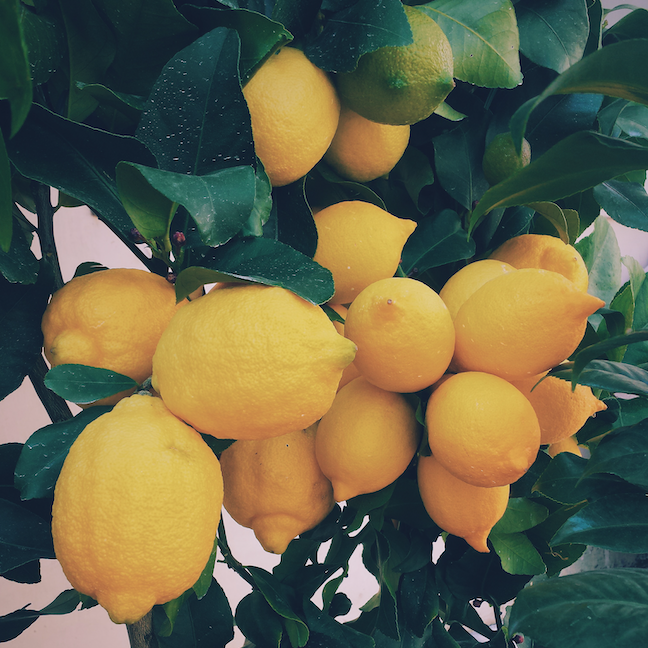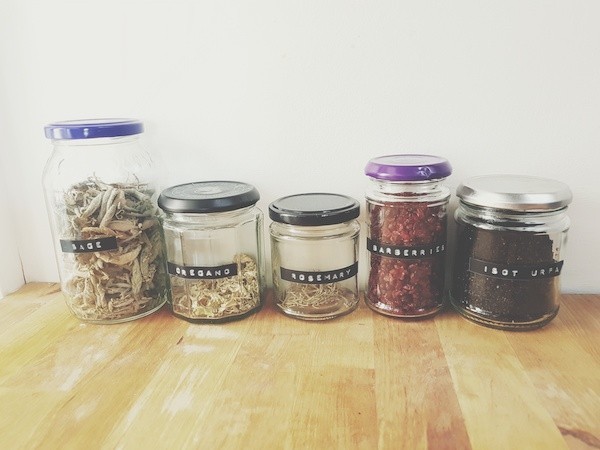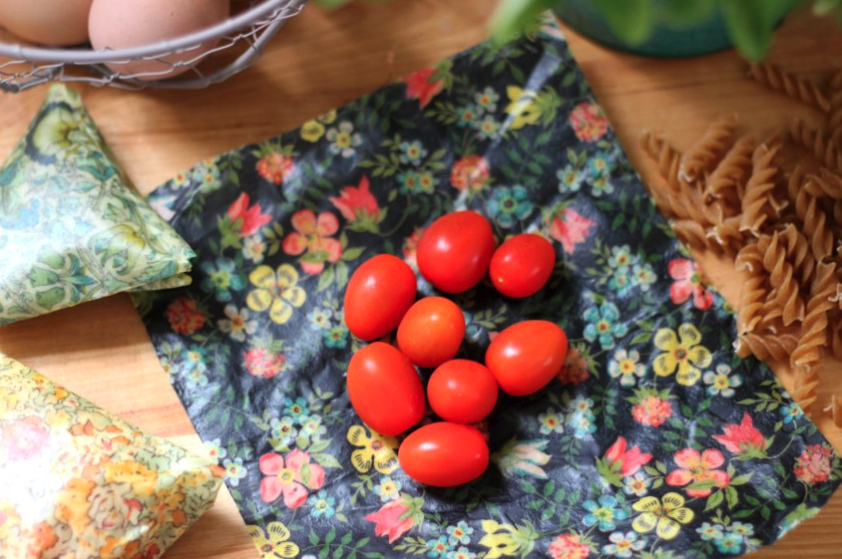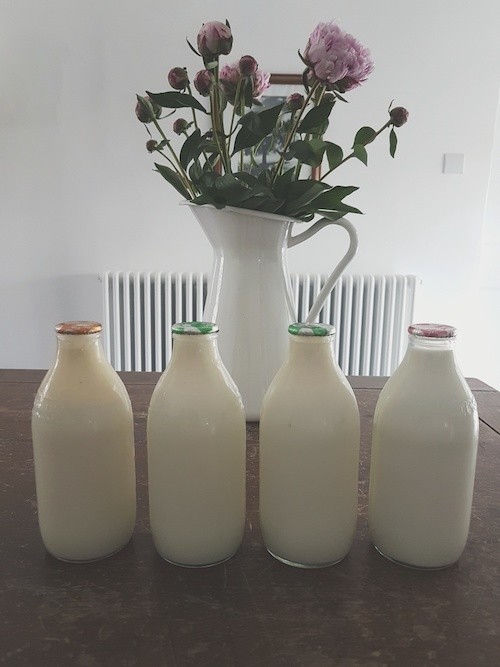#PlasticFreeJuly
Plastic takes 1000 years to decompose which means that all of the plastic ever created still exists! With only 9% of it being recycled the rest ends up polluting our planet.
Every minute a truck load of waste is emptied into our oceans causing global damage. Watch the BBC's War on Plastic with Hugh and Anita and Sir David Attenborough's documentaries which have helped to draw attention to this crisis.
Our best efforts at recycling will not solve this problem alone; we have to stop using so much plastic.
It's everywhere, it's cheap, it's easy, but we don't need it as much as we think we do!!!
We are by no means completely plastic free, but as Plastic Free July is here we wanted to share the steps we have taken, focusing on a different area of our lives each week throughout the month...
 Plastic planet
Plastic planet
Let's start with the Kitchen... cleaning products
Make your own!
Making your own natural cleaning products is surprisingly simple and also enables you to reuse or recycle existing containers that might otherwise be discarded.
One multi-purpose cleaner to have on hand for most jobs is a simple and cheap solution of lemon peel steeped in white vinegar for two weeks. For tougher jobs add a little bicarbonate of soda. A few drops of essential oil will make it smell lovely too! As you can use this for cleaning pretty much anything in your home it helps reduce the number of bottles in the cleaning cupboard too.
There are some great natural home products courses available here >
Cleaning cloths
Switch from disposable throwaways to machine washable cotton dish cloths for surface cleaning. You can even recycle your muslin face cloths when they are past their best to use for dusting and polishing.
 Natural cleaners: lemon, vinegar & bicarbonate of soda
Natural cleaners: lemon, vinegar & bicarbonate of soda
Washing up liquid
It's not entirely plastic-free, but Dr. Bronner's Sal Suds can be bought in bulk packs which hugely cuts down on overall plastic usage AND it can replace nearly all of your other cleaning products, helping to cut down on overall consumption and make purchasing more efficient and cost-effective.
You can use it for laundry, washing up, cleaning floors, carpet cleaning and as an all-purpose spray. There are many more uses and the Dr. Bronner's Sal Suds guide advises on the dilutions to make up for different uses.
We also really like Bio-D cleaning products which are eco-friendly and can be easily refilled, as well as Ecover, who also have widespread refill stations so that you can top up your own containers and really minimize waste.
Washing up brushes and scourers
Try replacing your plastic washing up brush with a natural alternative like this wooden brush with replacement heads from Redecker. You can just replace the head when it wears out meaning overall less consumption, and it looks great too.
We tried these natural scourers made from the inside of loofah plant and they really are great. They are very light weight and compact for travel but when they hit the water they expand and become much more substantial for tackling more stubborn dishes.
If you hang both of these up between uses they last ages too.
 Quick kitchen swaps to reduce plastic usage
Quick kitchen swaps to reduce plastic usage
Food storage & accessories
Glass jars
It is especially difficult to avoid plastic when it comes to food, and for some food items being wrapped in plastic means lower environmental impact in other ways (but that's a whole other story and challenge), but we can make small changes...
If like us you have accumulated lots of plastic storage containers over the years then the solution is not to throw them out, but re-use them instead of single-use plastics like clingfilm. Ideal for lunchbox snacks or picnics!
One example is to switch from individual flavoured yoghurt pots to large tubs of natural yoghurt to eat with fruit or honey. Go one step further and make your own yoghurt like Alex's mum.
When the time comes to part with these plastic containers replace them with glass or bamboo versions, or even better, re-use glass jars. They are ideal for baking ingredients, herbs and spices and all of these can be re-filled plastic free at your local zero-waste stores.
 Reuse glass jars
Reuse glass jars
Beeswax wraps
For items that glass jars and re-usable storage containers don't work for, you can use beeswax wraps as a great alternative to cling film. You can wrap them entirely around certain foods or use them to cover bowls.
They can be quite expensive, especially if you need quite a few so you can get crafty and thifty by making your own, check out Moral Fibres green lifestyle blog.
We love the selection of beeswax wraps (they do vegan wraps too) and food storage containers on &Keep, though there are lots of great retailers and makers providing great options.
 Moral Fibres beeswax wraps
Moral Fibres beeswax wraps
Wooden utensils
Say goodbye to plastic utensils in favour of wooden spoons, spatulas and even tongs. A Slice of Green have some great bamboo alternatives though we have aquired ours over the years from various places including vintage shops (great for old wooden chopping boards too!) and handmade by family and friends.
You could even learn to make some yourself with a spoon carving workshop - extra satisfying!
Reusable water bottle
It is estimated that in the UK 15 million plastic bottles are not recycled and when it comes to water bottles this is not just a habit that costs the Earth but it costs the wallet too.
So this is an easy switch with tons of great options out there. Here are some of our favourites:
- Chilly's water bottle - leakproof and they come in a wide range of styles so great for families so you don't get mixed up with whose is whose
- Hydro - a great range of options including a flask that can be used to keep water cool or hot drinks hot. Handy for the switch to reusable coffee cups too!
- Oxfam and lots of fair trade shops sell re-usable water bottles and kitchen utensils.
 Chilly's reusable water bottles
Chilly's reusable water bottles
Food swaps
Milk
Glass bottles are more environmentally taxing to produce and their weight means that they are a little more costly to transport then their plastic counterparts, but we need to look at the overall picture.
Glass milk bottles:
- Reduce the use of plastic, which ends up hanging around for 1000 years or more
- Reuse - you need to reuse a glass bottle at least 20 times for it to be more environmentally-friendly. Of course you get some breakages but most are used up to 25-50 times each!
- Recycle: glass can be recycled infinitely and many milk bottles are already made up from some recycled glass. Brilliant news.
It can be a bit pricier but it saves travel to the shops, helps the environment and the community, plus as demand surges environmental and cost improvements are being made.
You can find your local milkman here with the Find Me a Milkman website.
However, if you are not lucky enough to have a milkman doing the rounds near you then you could look for a local dairy farmer who is doing milk vending. These farms, where you purchase a glass bottle and then refill as and when you require via a vending machine full of fresh milk, are becoming increasing popular.
 Re-usable glass milk bottles
Re-usable glass milk bottles
Tea
Ever wondered why you have lots of little bags floating around your otherwise composted food waste? You may have already been aware but we were surprised to find out that our tea bags have plastic in them!
It's a good excuse to make the switch to loose leaf tea. You don't have to use a teapot and strainer though, you could make it easier by using a reusable tea infusers.
And, of course, lots of companies are now producing plastic-free teabags so we hope to see this trend increase. Our favourite, and more widely accessible, bags are Clipper but for a full review (and delicious Earl Grey options) have a read of this article from The Independent.
Making your own tea is a great option for herbal tea lovers: lemon balm grows really easily (in the mint family) and makes a delicious smelling and tasting brew, as does Verbena, Sage and Peppermint. Simply snip the leaves and add boiling water (or hang them to dry first so you can store it in bulk).
 Mint tea... easy, fresh, delicious!
Mint tea... easy, fresh, delicious!
Remember your consumer power!
- Inform your local shop keeper or supermarket manager that you demand less plastic and only want recyclable plastic wrapping.
- Tell you local pub that you don't want plastic straws!
Why not take a look at some of the fantastic courses focused on crafts to help us to live more sustainable and eco-friendly lifestyles here.
Plus, if you enjoyed reading this check out our article all about the beast that is the bathroom >



